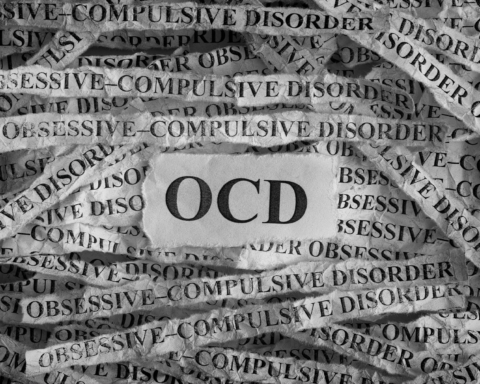“Everywhere I turned, I heard the same words: ‘You have to forgive.’” wrote trauma survivor and author Nancy Richards. “They came from my family, my counselors, and the religious community alike. I saw myself as a complete and utter failure. As though my self-esteem wasn’t low enough from years of abuse, try as I might, I couldn’t even get forgiving right!”[i]
Have you ever been unable to forgive someone, no matter how hard you tried? It’s easy to feel like something is wrong with you. But the truth is, you may be experiencing shame. As a trauma psychotherapist and author of the book You Don’t Need to Forgive, I’ve discovered that shame is one of the most significant and elusive obstacles to one’s ability to forgive.
Self-worth Precedes Forgiveness
You need some level of self-worth before you can forgive. “Within the definition of forgiveness is the implicit idea that people possess at least a moderate degree of self-respect, self-esteem, or perhaps, ego strength to be able to forgive,” writes forgiveness researcher Nathaniel Wade and his colleagues.[ii]Shame corrodes self-worth, and without self-worth, we may not be able to forgive, even if we want to.
One precondition of forgiveness is that you must be able to take on the perspective of another person: your offender. This requires a foundation (self-worth) to stand upon. If you believe that you have value and someone wrongs you, you’re not only able to recognize that you’ve been wronged but can also consider the offender’s experience. If you don’t believe that you have value, it might be impossible for you to consider the experience of your offender, as you are blocked by shame. “They’re right and I’m wrong” will likely be the extent of your consideration, and there will be no need to forgive.
Satan’s Closet Exposed My Shame
When I was thirty-two, my boss assigned me the smallest, darkest therapy office in the building. My colleagues assumed that I would be angry, as I was given what they called “Satan’s Closet.” Instead, I was resigned. I didn’t bother considering my boss’s intention; I believed that I deserved the worst office because I had little value. A few years later, when I was thirty-six, my boss reassigned me to a small, windowless office in a new building. Meanwhile, therapists who were newly hired, less experienced, and served fewer clients were assigned larger, more beautiful offices with windows. This time, I felt angry.
I had completed three years of trauma recovery, and I believed I had value and that I was being treated unfairly. I questioned my boss, who informed me that I was “more adaptable and flexible,” whereas my colleagues were “pickier and high-maintenance.” Although I was still upset, I was able to understand that my boss was attempting to make her employees happy and avoid conflicts. She wasn’t trying to harm or disrespect me. My self-worth and lack of shame helped me to consider my boss’s experience, and I was able to empathize with her. I quickly forgave her and informed her that I would need a new office, as she had underestimated my needs and expectations—a reminder that forgiveness and boundaries do not conflict. My boss was receptive, and a month later, I moved into a lovely new office with some of the largest windows in the building.
Shame disguises harm
Shame can become a significant roadblock in forgiving your offender(s), as it is the antithesis of self-worth. If you do not believe you have been harmed but rather brought harm upon yourself, you will not even consider forgiveness. After all, in that view, you’re the one at fault. To forgive, you must first be secure in your own value as a person. Forgiveness advocates, however, believe it’s the process of forgiving that supports self-worth. “With forgiveness, a client’s self-worth is restored because they respect themselves enough to admit what was done to them was wrong,” writes forgiveness researchers Suzanne Freedman and Tiffany Clark-Zarifkar.[iii] This theory may apply if you did not experience shame before or after being wronged. But if you did, shame will most often prevent you from acknowledging and accepting that you were wronged. How can we forgive our offenders if we absolve them of blame? I didn’t realize that my boss wronged me by assigning me Satan’s Closet, because I believed that’s what I deserved. So, there was nothing to forgive. I could not forgive her as a method to restore my self-worth; shame made that impossible.
When Forgiveness Reinforces Shame
If you plan to have any type of relationship with your offender(s), they must make changes, or your forgiveness will reinforce your shame. Psychologist Laura B. Luchies and her colleagues investigated how forgiveness impacts self-worth. They conducted two experiments and two longitudinal studies to measure what they called the Doormat Effect, which is the idea that your self-esteem will be negatively impacted if you forgive an offender who makes no behavioral changes and continues to harm you. They found that forgiveness can be beneficial if offenders meet certain conditions. They wrote that the perpetrator needs to act “in a manner that signals that the victim will be safe and valued in a continued relationship with the perpetrator, and examples of appropriate actions are acting in a generally agreeable manner and making amends.”[iv] Therefore, if your offender makes authentic and consistent positive behavioral changes, and you then forgive them, your self-worth is unlikely to be negatively impacted.
Forgiveness advocates will never admit that forgiveness can reinforce shame. Instead, they maintain that withholding forgiveness will harm you, even when your offender(s) do not make authentic and consistent positive changes. Forgiveness Robert D. Enright writes that “an offended person who refuses to forgive until certain contingencies are met suffers twice: once in the original offense and again as he or she is obligated or retain resentment, along with its concomitant negative cognitions and perhaps even negative behaviors . . . To forgive, then, is to show self-respect.”[v] This guidance is common among forgiveness therapy practitioners and advocates, and it’s damaging to those who experience shame. Well-intentioned though they may be, these practitioners and advocates reverse the order; forgiveness is a result of self-worth, not the other way around. Advice like Enright’s is tantamount to telling victims that they have no self-respect unless they forgive, and if they cannot forgive, then they will fail to achieve self-respect.
Address shame first, forgiveness second
Forgiveness can be a powerful, life-changing experience, but it’s not always the starting point. If shame is holding you back, trying to forgive too soon can feel like an uphill battle, and it may only deepen your shame. Before you can forgive, you need to reestablish your self-worth. By addressing your shame first, you can create the emotional space and safety needed for genuine forgiveness to occur.
Excerpted from You Don’t Need to Forgive: Trauma Recovery on Your Own Terms, by Amanda Gregory.
[i] Nancy Richards, Mother, I Don’t Forgive You: A Necessary Alternative for Healing (self-pub., 2017), 70.
[ii] Nathaniel G. Wade et al., “Helping Clients Heal: Does Forgiveness Make a Difference?” Professional Psychology: Research and Practice 36, no. 6 (December 2005): 634.
[iii] Suzanne Freedman and Tiffany Clark-Zarifkar, “The Psychology of Interpersonal Forgiveness and Guidelines for Forgiveness Therapy: What Therapists Need to Know to Help Their Clients Forgive,” Spirituality in Clinical Practice 3, no. 1 (2016): 51.
[iv][iv] Laura B. Luchies et al., “The Doormat Effect: When Forgiving Erodes Self-respect and Self-concept Clarity,” Journal of Personality and Social Psychology, 98, no. 5 (2010): 745.
[v] Sharon Lamb and Jeffrie G. Murphy, Before Forgiving: Cautionary Views of Forgiveness in Psychotherapy (Oxford: Oxford University Press, 2002), 45.

Amanda Ann Gregory, LCPC is a trauma psychotherapist renowned for her work in complex trauma recovery, notably as the author of You Don’t Need to Forgive: Trauma Recovery on Your Own Terms. With a keen focus on the specific needs of trauma survivors, Gregory’s expertise spans over 18 years in clinical practice. She has been featured in The New York Times, The Guardian, National Geographic, and Newsweek and published in Psychology Today, Psychotherapy Networker, and on Writer’s Digest. Find out more at www.amandaanngregory.com.






Unbound Social